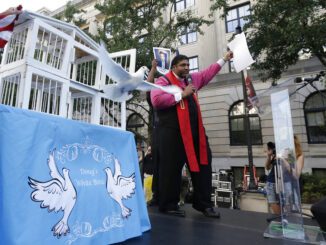
RALEIGH — A recent report has three recommendations with regards to the current laws on occupational licensing with an eye on identifying and reducing the challenges faced by military veterans and their spouses.
The report was produced by the Program Evaluation Division of the North Carolina General Assembly. A team of three worked on the report from September of 2019 through February of 2020.
North Carolina is home to around 707,000 military veterans — the seventh-largest veteran population in the country. There are also an estimated 86,000 military spouses living in the Tarheel state.
Many of these veterans and their families seek employment in professions that require an occupational license. These are granted by an agency or commission that serves to regulate entry into a profession and authorize licenses for that occupation.
Due to frequent deployment changes, military families move quite often between states, making it difficult to reenter the workforce in a timely fashion. For spouses of military members, this can mean having to be re-licensed each time they move.
Active duty service members often receive extensive training during their time in the military. That training may be equal to the needed credentials or certifications for civilian employment. A long licensure processes can create a hurdle to finding work in the state.
According to the report, North Carolina currently has implemented two of the three best practices recommended by the Department of Defense for facilitating such licensure for military spouses. Those two methods are licensure by endorsement and temporary/provisional licensure. The third best practice is to expedite the application process for spouses and is the first of three major recommendations the report makes.
To expedite licenses for spouses or veterans, the report suggests boards issue licenses within 30 days to bring requirements for military spouses into alignment with those already in place for applicants with military training.
The report also suggests requiring licensing boards to collect and report on how many military-trained applicants and military spouse applicants obtained a license and those that were denied. If approved, the first report would be submitted to the Joint Legislative Administrative Procedure Oversight Committee by Oct. 31, 2021. The data would reflect Fiscal Year 2019–20.
In addition, the report found that only 55% of boards in the state advertised or promoted military licensure processes on their websites. As a result, the PED report recommends that occupational licensing boards should be required to publicize and promote the appropriate general statutes by Dec. 1, 2020.


